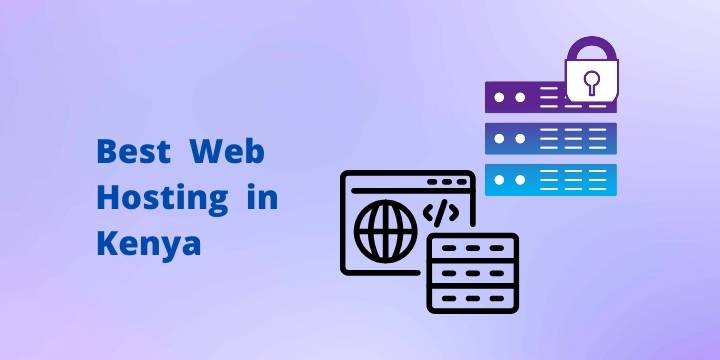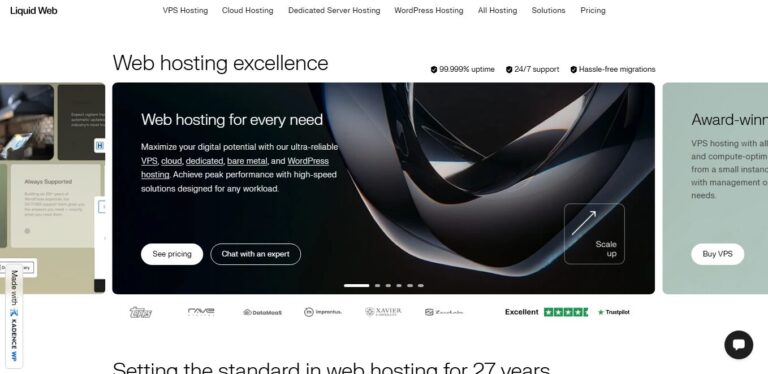How to Start a Christian Podcast: 10 Key Steps
Starting a Christian podcast can be an exciting and rewarding way to share your faith, inspire others, and build a community around your message. Whether you’re a pastor, ministry leader, or simply passionate about spreading the gospel, launching a religious podcast allows you to reach a global audience and make a lasting impact.

In this comprehensive guide, we’ll walk you through the essential steps to set up and launch your Christian podcast successfully.
Key Takeaways
- Understand the basics of podcasting and align them with your Christian values.
- Learn about the necessary equipment and software for quality production.
- Discover strategies for content creation, audience engagement, and promotion.
Step 1: Define Your Podcast’s Purpose and Niche
Before diving into the technical aspects of starting a Christian podcast, it’s crucial to clarify your podcast’s purpose and niche. Consider the following questions:
- What unique message do you want to share through your podcast?
- Who is your target audience?
- What specific topics or themes will you cover?
- How will your podcast stand out from other Christian podcasts?
Answering these questions will help you create a focused and compelling podcast that resonates with your intended listeners.
Step 2: Choose Your Podcast Format and Structure
Next, decide on the format and structure of your Christian podcast. Some popular options include:
- Solo episodes: Share your insights, teachings, or personal stories as the sole host.
- Interview-style episodes: Invite guests, such as pastors, authors, or ministry leaders, to discuss relevant topics.
- Scripted episodes: Create a structured, narrative-driven podcast that explores biblical themes or stories.
- Roundtable discussions: Gather a panel of hosts to discuss and analyze various Christian topics.
Consider the length and frequency of your episodes as well. Aim for a consistent release schedule, whether it’s weekly, bi-weekly, or monthly, to build a loyal audience.
Step 3: Invest in Quality Podcast Equipment
To ensure high-quality audio for your Christian podcast, invest in the right equipment. Here are the essential items you’ll need:
- Microphone: A good-quality microphone is crucial for clear and professional-sounding audio. Consider options like the Blue Yeti, Audio-Technica AT2020, or Shure SM7B.
- Recording software: Use reliable recording software to capture and edit your podcast episodes. Popular choices include Audacity (free), GarageBand (for Mac), and Adobe Audition.
- Headphones: Invest in a pair of comfortable, over-ear headphones to monitor your audio during recording and editing.
- Pop filter: A pop filter helps reduce plosives and unwanted noise from your recordings.
Step 4: Set Up Your Recording Environment
Create a dedicated recording space that minimizes background noise and echoes. Consider the following tips:
- Choose a quiet room with minimal external noise.
- Use acoustic treatments, such as foam panels or blankets, to reduce echoes and improve sound quality.
- Place your microphone on a sturdy stand or boom arm to minimize handling noise.
Step 5: Plan and Record Your Episodes
With your equipment and recording space set up, it’s time to plan and record your podcast episodes. Follow these steps:
- Develop a content calendar: Plan your episode topics, guests, and release dates to stay organized and consistent.
- Create episode outlines: Prepare a rough outline for each episode, including key points, scriptures, and discussion questions.
- Record your episodes: Set aside dedicated time to record your podcast episodes, ensuring minimal distractions and interruptions.
- Edit your episodes: Use your chosen recording software to edit your episodes, removing any mistakes, long pauses, or unwanted noise.
Step 6: Choose a Podcast Hosting Platform
To distribute your Christian podcast, you’ll need to choose a podcast hosting platform.
Select a reliable podcast hosting platform that aligns with your needs. Platforms like Buzzsprout or Podbean offer great features for hosting and distributing your podcast to major directories like Apple Podcasts and Spotify.
These platforms store your audio files, generate RSS feeds, and distribute your podcast to various directories, such as Apple Podcasts, Spotify, and Google Podcasts.
Step 7: Create Engaging Podcast Artwork and Descriptions
Develop eye-catching podcast artwork and compelling descriptions to attract potential listeners. Your artwork should:
- Be visually appealing and relevant to your podcast’s theme
- Include your podcast title and any relevant branding elements
- Meet the size requirements of your chosen podcast directories (typically 1400×1400 pixels)
Craft engaging episode titles and descriptions that accurately represent your content and entice listeners to tune in.
Step 8: Launch and Promote Your Christian Podcast
Once you have several episodes recorded and your podcast is set up on your chosen hosting platform, it’s time to launch and promote your show. Consider the following strategies:
- Share your podcast on social media platforms, such as Facebook, Twitter, and Instagram.
- Engage with your audience by responding to comments and messages.
- Collaborate with other Christian podcasters or ministries to cross-promote your shows.
- Encourage listeners to subscribe, rate, and review your podcast on their preferred listening apps.
- Utilize email marketing to notify subscribers of new episodes and updates.
Step 9: Monetize Your Christian Podcast (Optional)
If you wish to generate income from your Christian podcast, there are several monetization options available:
- Sponsorships: Partner with brands or organizations that align with your podcast’s values and audience.
- Affiliate marketing: Promote products or services you believe in and earn a commission on sales.
- Donations: Set up a donation system, such as Patreon or PayPal, for listeners who wish to support your podcast financially.
- Merchandise: Create and sell custom merchandise, such as t-shirts, mugs, or devotional books, related to your podcast.
Remember, monetization should be a secondary goal to creating valuable, Christ-centered content for your audience.
Step 10: Continuously Improve and Grow Your Podcast
As you continue your podcasting journey, strive to improve and grow your show. Here are some tips:
- Seek feedback from your listeners and implement their suggestions when appropriate.
- Attend podcasting conferences and workshops to learn from industry experts and network with other podcasters.
- Experiment with new episode formats, topics, or guest speakers to keep your content fresh and engaging.
- Analyze your podcast statistics to understand your audience’s preferences and adjust your content accordingly.
Adhering to these guidelines and producing content of consistent quality that inspires faith, you are on the path to establishing a Christian podcast that not only glorifies God but also has a profound impact on listeners worldwide.
Christian Podcast Equipment Checklist
To help you get started, here’s a handy checklist of the essential equipment you’ll need for your Christian podcast:
- [ ] Microphone (e.g., Blue Yeti, Audio-Technica AT2020, Shure SM7B)
- [ ] Recording software (e.g., Audacity, GarageBand, Adobe Audition)
- [ ] Headphones (over-ear, comfortable)
- [ ] Pop filter
- [ ] Microphone stand or boom arm
- [ ] Acoustic treatments (e.g., foam panels, blankets)
- [ ] Audio interface (optional, for advanced setups)
Christian Podcast Content Ideas
If you’re looking for inspiration for your podcast episodes, consider these content ideas:
- Bible studies and devotionals
- Interviews with pastors, ministry leaders, or Christian authors
- Testimonies and personal stories of faith
- Discussions on current events from a Christian perspective
- Answers to common questions about Christianity
- Parenting and family advice from a Biblical viewpoint
- Christian living tips and spiritual growth strategies
- Worship music and prayer episodes
- Apologetics and defending the faith
- Exploring church history and theology
Remember, the key is to create content that aligns with your podcast’s purpose, resonates with your target audience, and ultimately points listeners to Christ.
Branding and Marketing Your Podcast
Leveraging your podcast as a powerful branding and marketing tool is essential for success. Here are some strategies to consider:
- Create Compelling Content: Craft valuable, engaging content that addresses your target audience’s interests and pain points. This establishes your authority and keeps listeners coming back.
- Feature Influential Guests: Invite industry experts and influencers as guests on your show. Their insights add credibility and attract a wider audience.
- Promote Your Brand: Seamlessly integrate your brand into episodes by mentioning your products or services organically, without being overly promotional.
- Optimize for Search Engines: Use SEO best practices when titling and describing episodes to improve discoverability on podcast directories and search engines.
- Leverage Social Media: Actively promote your podcast on social media platforms, engage with your audience, and collaborate with other podcasters for cross-promotion.
- Offer Sponsorships: Partner with brands or organizations that align with your podcast’s values and audience for sponsorship opportunities.
Building a Community
A strong community around your podcast can foster loyalty, engagement, and growth. Consider these strategies:
- Encourage Audience Interaction: Foster a sense of community by actively engaging with your listeners through comments, reviews, and questions.
- Create Exclusive Content: Offer exclusive content, such as bonus episodes or behind-the-scenes insights, to your most dedicated listeners or supporters.
- Host Live Events: Organize live events, such as meetups or Q&A sessions, to connect with your audience in person and strengthen the community bond.
- Collaborate with Other Podcasters: Partner with other podcasters in your niche for cross-promotion, guest appearances, or joint events to tap into new audiences.
- Leverage Social Media Groups: Create and moderate social media groups or forums where your listeners can connect, discuss, and share their thoughts on your podcast.
Legal and Ethical Considerations
As a podcaster, it’s crucial to understand and adhere to legal and ethical guidelines to protect yourself and your audience. Here are some key considerations:
- Avoid Defamation: Be cautious when discussing individuals or organizations, as making false or defamatory statements can lead to legal consequences.
- Check for Suppression Orders: If discussing legal proceedings, ensure you are not violating any suppression orders that restrict what can be discussed.
- Comply with Consumer Laws: When incorporating advertisements or endorsements, ensure you are not engaging in misleading or deceptive conduct, as regulated by consumer protection laws.
- Obtain Guest Releases: Have guests sign release and consent forms to clarify the legal relationship, rights, and responsibilities involved in their participation.
- Respect Intellectual Property Rights: Ensure you have the necessary permissions or fall within fair use guidelines when using copyrighted material, such as music or video clips.
- Provide Disclaimers: Consider including disclaimers, particularly when providing financial, legal, or other forms of advice, to clarify the limitations of your content.
- Maintain Ethical Standards: Uphold ethical principles, such as transparency, honesty, and respect for your audience, to build trust and credibility.
Implementing these strategies and adhering to legal and ethical standards can help you establish a successful, impactful, and responsible Christian podcast that not only resonates with your audience but also aligns with your core values.
FAQ on How to Start a Christian Podcast
Disclosure: We may earn commission for purchases that are made by visitors on this site at no additional cost on your end. All information is for educational purposes and is not intended for financial advice. Read our affiliate disclosure.






